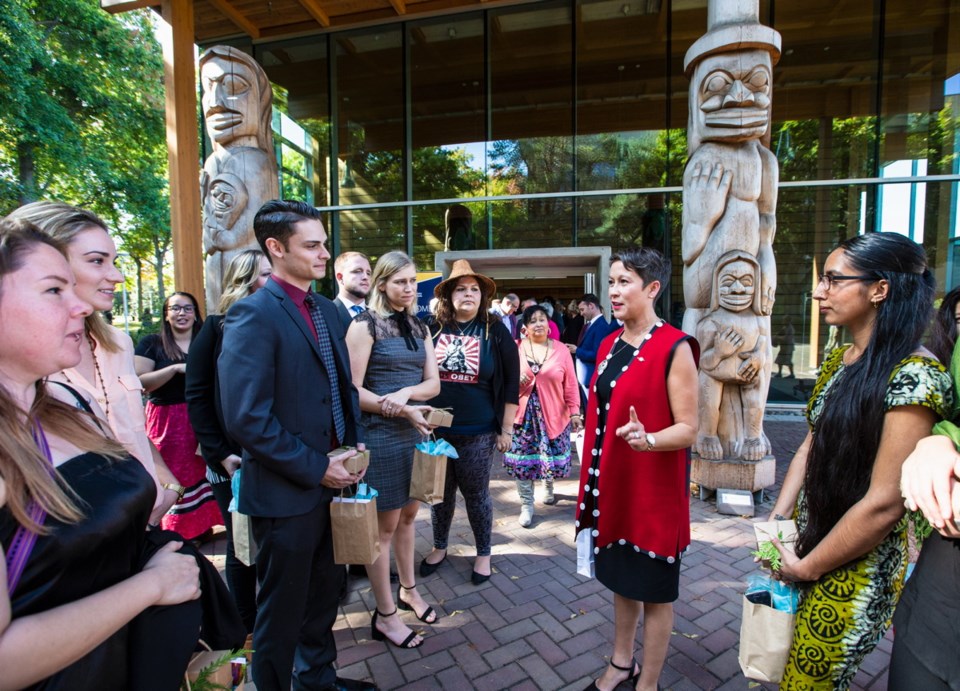In what is described as a “world first,” the University of Victoria launched a new law degree program Tuesday that will combine the study of Western legal customs with Indigenous laws and practices.
Graduates of the four-year program will hold degrees in Canadian Common Law and Indigenous Legal Orders.
“We are resilient Indigenous people and our laws have never gone away,” said Melanie Mark, B.C. minister of Advanced Education, who is Nisga’a, Gitxsan, Cree, Ojibway, French and Scottish, at a ceremony inside UVic’s First Peoples House.
“Today is about affirming our place as Indigenous people in Canada and around the world,” said a visibly emotional Mark. Attending the ceremony were politicians, donors, First Nations leaders, elders, Indigenous singers and the 26 students who began the program this month.
A crucial portion of the new program will be field studies in which students go to Indigenous communities, learn how Aboriginal legal processes are used today and work with communities on law-related projects.
Indigenous law is expected to play a role in dealing with issues ranging from fisheries management to water laws, resource development, child welfare, dispute resolution and governance.
With respect to fisheries management, John Borrows, Canada research chair in Indigenous law at UVic, pointed to the example of a common plant that played a role in determining when fishing should begin for some First Nations.
Those First Nations believe salmon should not be taken until the iron weed flowers, a custom that allows enough fish to spawn to ensure return of the fish in subsequent years, said Borrows, who co-founded the new combined law program with Val Napoleon, law foundation chair in Aboriginal Justice.
“It’s intermingled with science and other evidence as well,” he said. “But you can draw upon that, not just as evidence of good judgment but as a standard for judgment: ‘Is the flower out yet?’
“It’s the indicator species that says: ‘Enough salmon have gone through and it’s OK to fish.’ ”
He said Indigenous law also has a lot to offer in the realm of child welfare and family law. When dealing with a First Nations family, it makes sense to ask what local elders say or what Indigenous laws and practice offer.
Borrows noted that Canadian common law now creates legal personalities for corporations and grants them legal rights. He said similar legal rights can be enacted around something like a species of salmon, especially when the fish holds a unique significance for First Nations.
Colby Lizotte, a first-year student who is in the first class for the new program, said while she was growing up in the Alberta Métis community of Fort Vermilion, Canadian law seemed like a foreign language.
Her goal is to use the program to help her community understand and navigate through the system.
UVic dean of law Susan Breau said the law school and the university are committed to the success of the combined degree.
UVic president Jamie Cassels said the “unprecedented program” will have a transformational impact on communities in Canada and around the world.
“This program is nested on a university that has made an honest and authentic commitment to reconciliation and to the process of nation building for our country,” he said.



